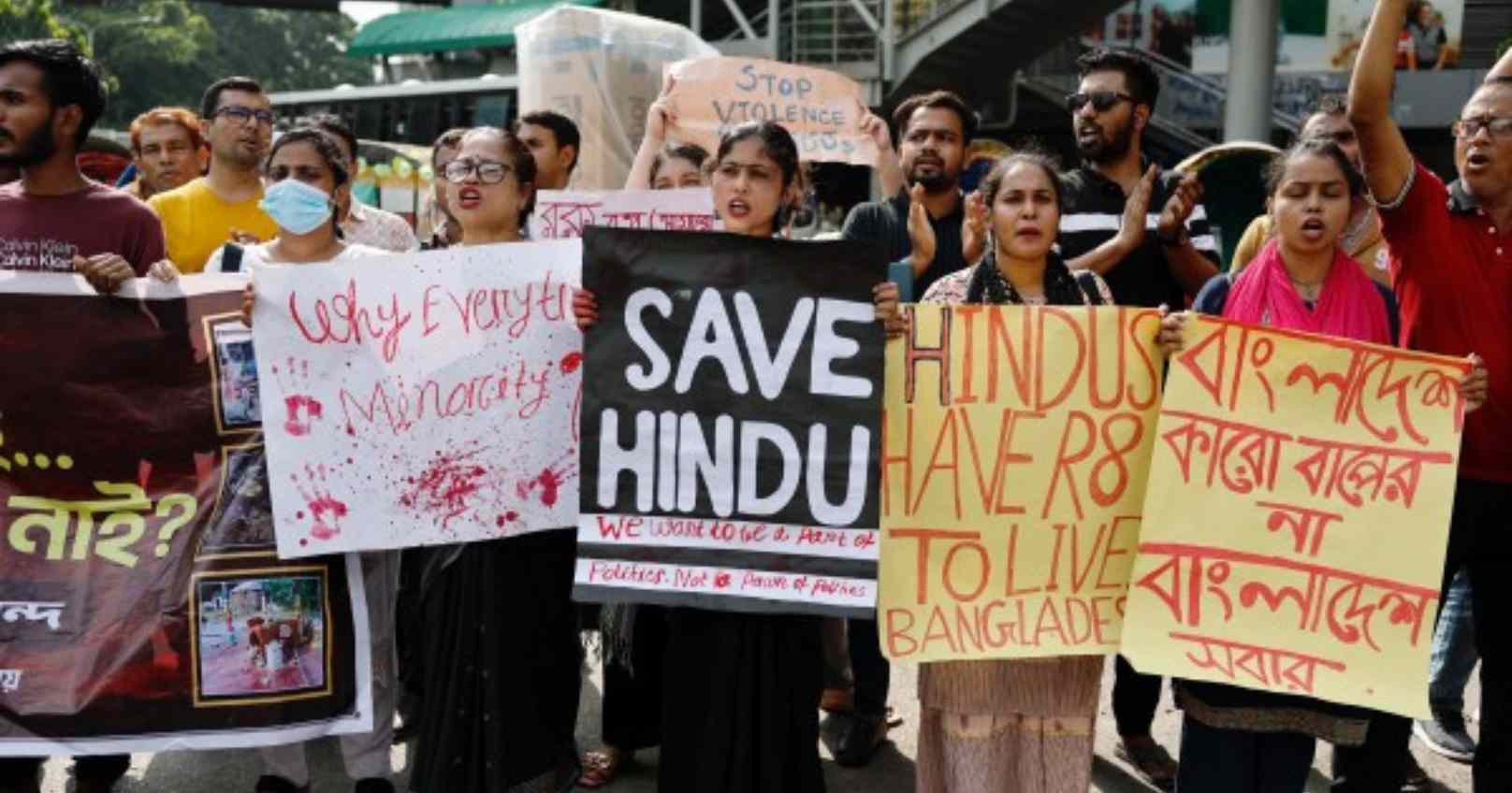In Bangladesh, the media's portrayal of a recent survey by Voice of America (VOA) about minority security under the interim government of Muhammad Yunus has sparked controversy. While local media outlets highlighted the survey's claim that minorities felt "safer" under the caretaker government, the actual ground reality paints a different picture, particularly among the non-Muslim population.
The VOA survey, conducted in late October, found that 64.1% of respondents believed the interim government was offering greater protection to minorities compared to the previous Sheikh Hasina administration. This finding was widely reported by Bangladeshi media, including The Daily Star, Dhaka Tribune, and others. However, the sample of the survey—comprising mostly Muslim respondents—reflects their perception rather than that of the minority communities.
Out of 1,000 survey participants, 92.7% were Muslim. Among Muslim respondents, only 13.9% felt that the security of minorities had worsened under Yunus' government, while 33.9% of non-Muslim respondents reported feeling less secure. These results highlight a significant divide between the two groups, with minorities, particularly Hindus, expressing growing concern over their safety.
Hiren Pandit, a Dhaka-based program coordinator, shared his firsthand experience with The Business Standard, stating that his village homes were set on fire and that they still lived in constant insecurity. Jayati Sarker, an NGO worker, described how she no longer felt safe returning home at night, citing a growing sense of unease even in the capital.
A report by Transparency International Bangladesh (TIB) also raised alarms, documenting that religious and ethnic minorities, along with marginalized communities, had become victims of violence during the first 100 days of the Yunus regime. This period also saw a surge in anti-minority incidents, including attacks on places of worship.
While the VOA survey was conducted in late October, another VOA report from August highlighted the ongoing targeting of religious minorities amidst political unrest in Bangladesh. During this period, Chinmoy Krishna Das Brahmachari, a Hindu monk advocating for minority rights, was arrested under a sedition charge filed by a BNP (Bangladesh Nationalist Party) worker, although the party leadership later distanced itself from the case.
The violence against Hindus escalated in places like Chattogram after Friday prayers, with mobs attacking temples and assaulting non-Muslims. Reports indicated that several Hindu families fled the area for safety, as their shops and homes were targeted.
These attacks have drawn global condemnation, including from neighboring India, which raised concerns about the rising violence against Hindus and other minorities in Bangladesh. India's Ministry of External Affairs (MEA) urged the Bangladeshi government to take immediate action to protect religious minorities, dismissing claims that the incidents were exaggerated by the media.
Muhammad Yunus, for his part, has rejected the allegations, calling reports of violence against minorities “exaggerated propaganda” aimed at destabilizing the country. However, given the rising attacks and the discord between media reports and the lived experiences of minorities, the role of the media in shaping public perception is now under scrutiny.
As the situation continues to unfold, the international community, including India, has called on Bangladesh to address the growing security concerns of its minority populations.







